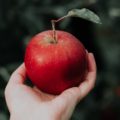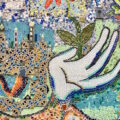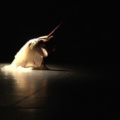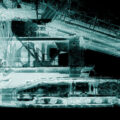For Love of the Earth, and the Luck of a Poet: on Derek Sheffield’s Not for Luck
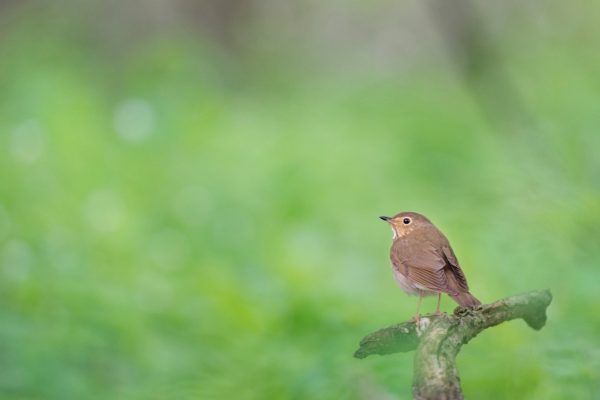
In Not for Luck, Derek Sheffield translates into language a morality beyond nature’s potential use and exploitation by humankind. As a post-romantic nature poet, Sheffield’s poems are colored by a sense of separateness from nature and a recognition that language itself impedes any immediate communion with the world. In the collection’s opening poem, “Timid as Any Herd Animal,” the beauty of nature is characterized as prescient, so long as the observer avoids distractions. Nature becomes even more prominent in psychological absence, achieved by a silence that only the poet can hear. What he is after, I think, is not simply meditation in which the poet tries to achieve harmony, but deliberation:
O just a while longer,
A day, maybe three, give them
a rest. Have the hammocks hold fast
and the bark remain in the dog.
Have the thinnest veil of dusk,
fog, or drizzle, call stillness
near, her sister, silence, here.
Ecological poetry, like Sheffield’s, has worked to eschew the pathetic fallacy of the romantics due to what ecologists respect as an increasing interest in science as well as realism. As a well-known environmentalist, Sheffield’s poetry is less polemic than conservatory as he brings the reader’s attention to the endangered species we often overlook. Capturing the trace of words embodied by sounds, his use of language and form allows these words to drift hypnotically on the page, sometimes to an extreme that interrupts the narrative, in order to show how complex climate ethos is. He displays an artful collection of plant and animal life, whether it be fish, wrens, sand crabs, does, or the forest reserves.
In “Stewards at Work,” we find a catalogue of things in the living environment that should be conserved, despite the fact that a complete inventory is, in fact, infinite.Sheffield is not tentative about showing the reader his astonishment at the intricacy of this molecular universe. There seems to be always another living thing worth saving, whether that be an animal or the arbitrary signs that refer to them: “And that white faced dog. /Let’s have her pace a little longer the length/ of every fence … and perk her ears/toward something always coming/that never quite arrives.” Do we know what that something is?
Whatever it is, it imbues recollections often buried just beneath consciousness bringing some poems to an existential crisis. I am reminded of Gregory Orr’s remark in Poetry as Survival that to, “simply be human as a body in time is to know a number of significant jeopardies.” One jeopardy is climate change and the race to preserve life in the environment. In poems like “At the Decomposition Site in J.H. Andrews Experimental Forest, a Visitation,” the mingling of scientific discourse and poetic narrative draws the reader into a world unto itself, however microscopic, as evinced by these opening lines:
Below thick moss and fungi and the green leaves
and white flowers of wood sorrel, where folds
of phloem hold termites and ants busily gnawing
through rings of ancient light and rain, this rot
is more alive, says the science, than the tree that
for four centuries it was…
From there, the poem opens to a spectrum of associations surrounding the organicism of the tree. The speaker is clearly in awe, and the reader shares that sentiment. As someone immersed in nineteenth century romantic literature, I take note of the paradox that the life of things which Wordsworth and Whitman were so interested in absorbing into the self and becoming a part of has its own hidden wisdom within the physical world. Natural facts become increasingly mystical—a move that can be seen in poets from Oppen to Ammons, and even to Merwin, whose deep image poetry would not be classified as either realist or objectivist. Yet, the intermingling of observation and politicization in Sheffield’s verse sometimes obscures the best part of his penetration into the things that inspire him. Poetry derives from the living earth and can manifest the same complex, adaptive, and evolving balance as the ecosystem.
As the younger generation of poets rediscover a religious tincture in scientific inquiry, they harken back to a Wordsworthian divinity within living things, rather than simply the biology within them, and Sheffield comes to seem more romantic than scientific. In one poem, the reader encounters the horror of a boy washed up on a beach, representative of migrants from all over the world fleeing their homes in search of sanctuary. A nuanced political poem, it yet retains so many of the qualities that define an ecopoetic sensibility along with a concern for the habitat (increasingly endangered by technology) and for the people caught unawares by the destructive powers of nuclear weapons. Sheffield does not hide his subtle disdain for humanity’s inhumanity, and expresses quiet dissent:
“The Wren and the Jet at a Research Forest near Fort Knox, seventy-One Years since the Bombing of Hiroshima, Eight Months since the Photo of a Three-Year-Old Syrian Boy Face down on a Turkish Beach, His Red Shirt, His Blue Shorts”
A sound like a plucked banjo as a Carolina wren
lands on a window screen. A parent
and fledgling the last two mornings have made their rounds
of this Kentucky cabin. As the wren pecks
through a beetle pried from a sill, a jet
roars back to the fort. Sound drifts in waves
from the state highway and the beeping of a truck
backing up to the Jim Beam distillery, all that bourbon dribbling
into bottles locals stopped buying when a Japanese concern
bought the company. The scaly feet grip so close
the battering wings make little breaths against the back of my neck.
I’m here to finish the book I can’t seem to finish.
“Everybody dies, Get over it.” Eighteen years ago
that was Rick, who lives in language. But those waves
kept washing up all night, kept finding that boy
the way a parent returns to a fevered child.
The sand keeps spilling from his open mouth.
The poem takes place in a rural cabin where the poet is trying to write the book “[he] can’t seem to finish.” A wren lands on a window screen with a sound like “a plucked banjo.” While studying the wren, he sees it pry a beetle from the screen, and is then disturbed by a jet roaring back to the base at Fort Knox. The beeping truck, the jet, and the distillery invite reflection on the role of capitalistic interests polluting the natural environment—although the military presence at Fort Knox has already impinged on the research forest.
The anonymous boy in the last line, whose identity is reduced to a “red shirt, and blue shorts” remains faceless, blameless, and therefore exists for the poet in a language of loss. The boy’s trust is betrayed by a senseless indifference—as if the man-made borders that deny indigents asylum are written in “stone.” The poet reaffirms the life of the boy by memorializing him within the system of language, words “spilling from his open mouth,” as if nature’s moral consciousness speaks up against the human subterfuge and egregious endangerment of innocent lives. The boy has no telling allegiance to either side. He is a casualty of a war He lives in the language of witness and condemnation that records treachery such as this. There is no absolution without recognition of wrongdoing.
Overall, Sheffield’s poems shape an elegy to the earth, lost to capitalist interests. One must speak of nature as one speaks of oneself, and indeed Sheffield does speak of himself, his life, and his family.
In “Exactly What Needs Saying,” the poem opens with the poet redefining a scene from memory:
There’s Father at the kitchen counter,
and there he is at the stovetop
where a steel pot’s beginning to bubble.
now he’s picking up and putting away,
now rinsing plates, for tomorrow…
This seemingly arbitrary memory, what Wordsworth might call a “spot of time,” leads the speaker to remember what appears to be his own father or himself as a father. The poet, now at a remove, recognizes the significance of a moment when we must speak for the children who cannot speak for themselves, echoing the critique of romanticism that underlies so much ecological poetry. The daughter is crying, as [he] croons: “Use your words.” The speaker uses his words in the poem to say what the father does not—he is “reading” into what is not said—and this becomes the formulation of the poem itself. The father draws speech out of a “reserve” that is “never done,” acknowledging the endless chain of arbitrary signs that communicate desire and need. The past is always prologue when meaning is yet to be articulated:
How much longer
will it be before you stop doing
and start saying exactly what needs saying?
Not for Luck suggests determination, purpose, and even intervention. The poet’s unspoken deed is no different than it has been since the twilight of the written age when Sappho’s lyrics were imprinted on the papyrus made from the sedge plant, surviving from antiquity as she exhorts the beauty of nature as an art to be attributed to the goddess Aphrodite. Love of the earth may be mute; but like all prayer, its evocation is social. Poets like Sheffield have admonished us not to speak on behalf of the earth, but to speak in support of a more ethical society on behalf of the voiceless. It demands an ecological ethic.
About Judith Harris
Judith Harris is the author of Atonement and The Bad Secret (LSU Press), Night Garden (Tiger Bark Press), and Signifying Pain (SUNY Press). Her poems have appeared in The Nation, The Atlantic, The New Republic, Slate, The Hudson Review, American Life in Poetry, and NPR. Her articles and reviews have appeared in AWP Chronicle, The American Journal of Psychoanalysis, On the Seawall, and Midwest Quarterly. A new book, The Poetry of Loss: Grief in Romantic and Contemporary Elegies. is due out with Routledge in 2023.

